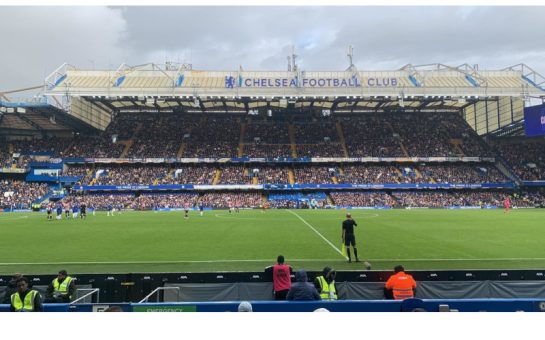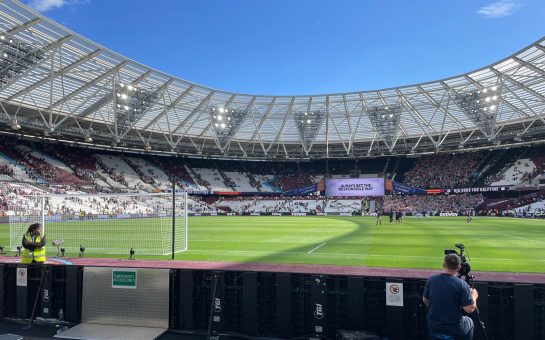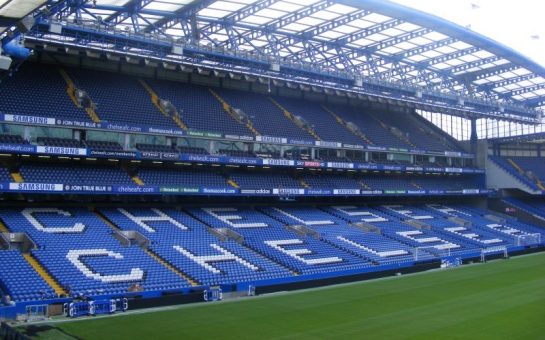By Ahmed Shooble
February 5 2020, 10.45
Follow @SW_Londoner
Futsal is changing the way young people play football.
By combining the mental and physical rigours of the game, a fast-paced version of football with ingenuity as the essential asset, Futsal Elite are among some of the professional coaches giving young people the confidence and ability to differentiate themselves on the pitch.
Futsal is played with a heavier ball than football, and a smaller sized pitch, making for a more concentrated area of action and no place to hide as defence perpetually springs to attack.
Futsal Elite coach Alfie Rowlands-Ricklesford, 30, said: “We looked into South American players and wondered why they are so dominant in world football. The answer was futsal.
“Back then it was difficult to find equipment like futsal balls, which were quite unheard of.
“It just started with a session in Morden and it’s grown from there.”
Since starting some seven years ago, Futsal Elite now run 16 sessions every week across London with 38 schools and organise breakfast, lunch and dinner clubs, as well as holiday camps.
Their Twitter biography describes them as a ‘specialised football programme, developed by professional coaches who strongly believe there is a flaw with the English game.’
Speaking on those flaws, Futsal Elite coach Ahmed Ghoneim, 36, said: “You can’t just put everyone in the same system and say, ‘okay guys, this is the way we play because this is what professional footballers are doing’.”
“Our coaching programme operates in a gap because academy coaches over-emphasise on positioning, whereas we stress creativity, risk-taking and freedom of expression.
“This is why you occasionally get one or two creative English players but in Brazil you have loads who can think quickly as well. It’s completely different and that is because of futsal.”
According to Mr Rowland-Rickelsford, a former academy coach for 15 years, the main flaw with English academies is their rigid structure and an impractical perspective on player potential.
He said: “How do you know a nine-year-old is going to be a striker? You don’t know.
“Players at that age should play centre back one week, left back another so they are constantly learning.
“The ‘win at all costs’ mentality from coaches needs to be dropped dramatically at that age. It should be purely developmental because players develop at different rates.”
The coaches believe futsal can separate their students should they choose to join academy systems, but urge pupils to focus on futsal first.
Mr Rowland-Rickelsford said: “We encourage parents to stay out of academy football until the age of 13.
“When they finally enter the academy environment, they are different and people say ‘wow, I like this kid – they are doing things the others aren’t doing’.”
From ‘ball familiarity’ to ‘ball mastery’, Futsal Elite apply a grading system akin to martial arts so students can learn, improve and implement their skills in real game scenarios.
In doing so, these coaches are attempting to inject an intercontinental touch into English football to do away with the stiffness they feel exists on our shores.
England’s last footballing triumph was in 1966 and the closest the men’s senior national team has come to replicating that is a 4th place finish.
In that time, the likes of Brazil, Argentina, and Portugal have all experienced national team success.
The Futsal Elite coaches do not think it is a coincidence these three nations have produced some of the greatest footballers with futsal backgrounds.
Mr Rowland-Rickelsford said: “The main difference between our football cultures is futsal, players like Ronaldo, Neymar, Ronaldinho all swear by it in terms of their development.
“We hope to push players through to the national team one day. We’ve got quite a few talented girls on our books as well. It would be nice to see them bear our ideals on a national stage, for England or elsewhere.”
A change within English football could be afoot, particularly if Futsal Elite continues to inspire the next generation.




